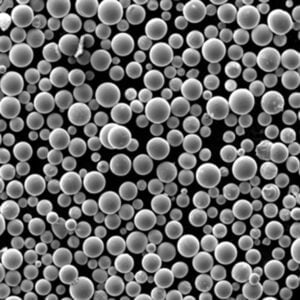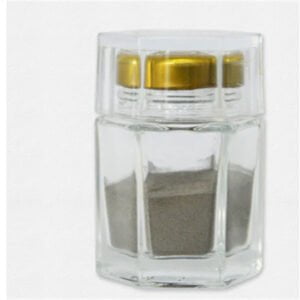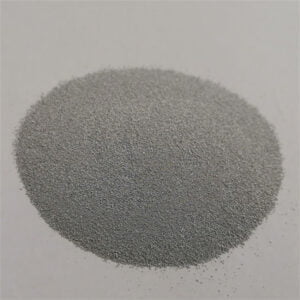DED för biltillverkning
Innehållsförteckning
Bilindustrin befinner sig i ett konstant tillstånd av förändring, driven av obevekliga krav på lättare, starkare och mer bränslesnåla fordon. Ange riktad energideposition (DED), en revolutionerande additiv tillverkningsteknik (AM) som är redo att förvandla hur bilar är byggda. Föreställ dig en process som bygger komplexa metalldelar lager för lager, och erbjuder oöverträffad designfrihet och anpassning. Det är magin med DED, och det förändrar snabbt spelet för biltillverkare över hela världen.
DED: Ett metalliskt underverk
DED, även känd som Laser Metal Deposition (LMD) eller Cold Metal Transfer (CMT), fungerar som en högteknologisk skulptör. En koncentrerad energikälla, vanligtvis en laserstråle, smälter metallpulver som matas in i maskinen. Denna smälta metall deponeras noggrant på en plattform och bygger den önskade delen lager för lager.
Tänk på det som att skapa en 3D-metallskiss med en laserpenna, men i industriell skala, med otrolig precision och kontroll. Till skillnad från traditionella tillverkningsmetoder som bearbetning eller gjutning, eliminerar DED behovet av komplexa verktyg och erbjuder ett mycket bredare designutrymme.
Men exakt vad är dessa metallpulver som DED använder för att bygga dessa bilunderverk? Spänn fast dig, för vi dyker in i den fascinerande världen av DED-metallpulver:
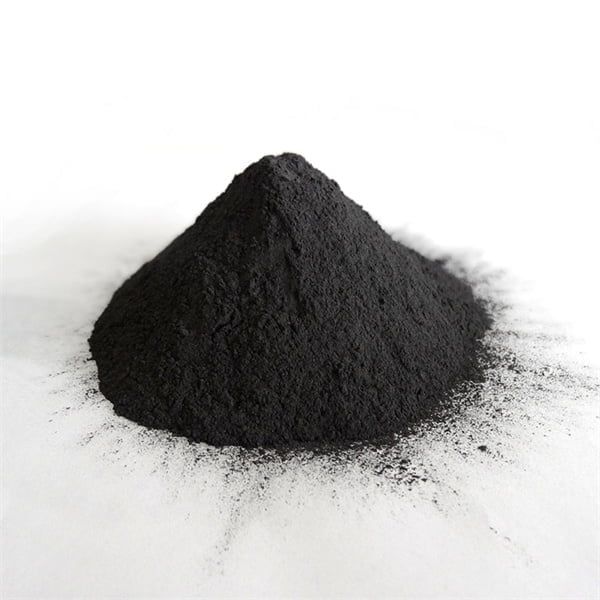
Metallpulver för DED: Ett materiellt menageri
Framgången för DED beror på det specifika metallpulver som används. Olika pulver erbjuder unika egenskaper och passar till en mängd olika fordonsapplikationer. Här är en närmare titt på några av de vanligaste DED-metallpulverna och deras egenskaper:
| Metallpulver | Sammansättning | Fastigheter | Tillämpningar inom fordonstillverkning |
|---|---|---|---|
| Rostfritt stål 316L | Fe (järn), Cr (krom), Ni (nickel), Mo (molybden) | Utmärkt korrosionsbeständighet, god mekanisk hållfasthet, biokompatibel | Avgasgrenrör, karosspaneler (särskilt för avancerade sportbilar som kräver överlägsen korrosionsbeständighet), komponenter för medicinsk utrustning som används i ambulanser |
| Inconel 625 | Ni (nickel), Cr (krom), Mo (molybden), Fe (järn) | Exceptionell prestanda vid hög temperatur, bra oxidationsbeständighet | Turbinblad, avgaskomponenter, värmesköldar |
| Aluminium Si7Mg0,3 | Al (aluminium), Si (kisel), Mg (magnesium) | Högt förhållande mellan styrka och vikt, god svetsbarhet, utmärkt korrosionsbeständighet | Lätta fjädringskomponenter, bromsok, strukturella komponenter som kräver en balans mellan styrka och vikt |
| Titan Ti-6Al-4V | Ti (titan), Al (aluminium), V (vanadin) | Högt förhållande mellan styrka och vikt, utmärkt biokompatibilitet | Högpresterande motorkomponenter som vevstakar och kolvar, proteser som används i specialfordon för personer med funktionshinder |
| Nickellegering 718 | Ni (nickel), Cr (krom), Fe (järn), Mo (molybden), Nb (niob) | Hög hållfasthet, bra krypmotstånd vid förhöjda temperaturer | Kugghjul, axlar, rymdkomponenter som ofta används i högpresterande racingbilar |
| Kobolt Krom CoCrMo | Co (kobolt), Cr (krom), Mo (molybden) | Hög slitstyrka, biokompatibel | Höftproteskomponenter som används i specialfordon för personer med funktionshinder, skärande och slitage verktyg |
| Verktygsstål H13 | Fe (järn), Cr (krom), Mo (molybden), V (vanadin) | Hög hårdhet, bra slitstyrka | Formar och formar för stansning och formning av bildelar |
| Koppar Cu | Cu (koppar) | Utmärkt termisk och elektrisk ledningsförmåga | Kylflänsar för högpresterande elektronik som används i elfordon, elektriska samlingsskenor |
| Inconel 718C | Ni (nickel), Cr (krom), Fe (järn), Mo (molybden), Nb (niob) | Liknande egenskaper som Inconel 718, men med förbättrad sprickbeständighet | Kritiska motorkomponenter i högpresterande och racingapplikationer |
| Maraging Steel 1,2379 | Fe (järn), Ni (nickel), Mo (molybden), Co (kobolt), Ti (titan) | Hög hållfasthet, utmärkt seghet | Kritiska säkerhetskomponenter som styrknogar och upphängningsarmar |
Detta är bara en glimt av den mångfaldiga världen av DED-metallpulver. När DED-tekniken fortsätter att utvecklas kan vi förvänta oss att ett ännu bredare utbud av pulver kommer att utvecklas för ännu mer specialiserade applikationer inom fordonsindustrin.
DED i handling: Omvandling av fordonstillverkning
Nu när vi har utforskat den fascinerande världen av DED-metallpulver, låt oss se hur denna teknik översätts till verkliga tillämpningar inom bilindustrin. DED erbjuder en mängd fördelar jämfört med traditionella tillverkningsmetoder, vilket gör den till en spelväxlare för biltillverkare:
- Oöverträffad designfrihet: Till skillnad från traditionella metoder som begränsas av verktygsbegränsningar tillåter DED att komplexa geometrier och interna funktioner kan inkorporeras i design. Föreställ dig lättviktskomponenter med invecklade gallerstrukturer för optimala styrka-till-vikt-förhållanden, eller integrerade kylkanaler i motorblock för förbättrad värmehantering. DED gör dessa designdrömmar till verklighet.
- Lättviktsrevolution: Bilindustrin är på en obeveklig strävan efter att tappa pund. DED, med sin förmåga att bygga lätta men ändå robusta strukturer med material som aluminium och titan, är ett nyckelvapen i denna viktminskningsstrid. Lättare fordon leder till bättre bränsleeffektivitet, minskade utsläpp och i slutändan gladare kunder som är oroliga för miljön.
- Snabb prototypframställning och on-demand tillverkning: Föreställ dig att du behöver en skräddarsydd komponent för ett prototypfordon – traditionellt skulle detta innebära långa bearbetningsprocesser. DED erbjuder en snabbare och smidigare lösning. Med DED kan komplexa prototyper skapas snabbt och effektivt, vilket påskyndar utvecklingscykeln och får innovativa nya bilar ut på marknaden snabbare. Dessutom tillåter DED tillverkning av reservdelar på begäran, särskilt för äldre eller urproduktionsdrivna fordon, vilket minimerar stilleståndstiden och håller bilarna på vägen.
- Reparation och omtillverkning: DED handlar inte bara om att skapa nya delar; det är också ett kraftfullt verktyg för att reparera och återtillverka befintliga. Föreställ dig ett sprucket motorblock eller en utsliten växel – traditionellt sett skulle dessa delar bytas ut. DED erbjuder en mer hållbar och kostnadseffektiv lösning. Genom att selektivt deponera material på skadade områden kan DED blåsa nytt liv i utslitna komponenter, förlänga deras livslängd och minska avfallet.
Här är några specifika exempel på hur DED redan förändrar biltillverkningen:
- DED kan användas för att tillverka integrerade transmissionshus: Traditionellt är transmissionshus komplexa sammansättningar gjorda av flera delar. DED gör det möjligt att bygga ett enkelt, lätt hölje med intrikata interna kanaler och funktioner, vilket förbättrar effektiviteten och minskar vikten.
- DED kan användas för att tillverka lättviktsupphängningskomponenter: Genom att använda DED med aluminium- eller titanpulver kan biltillverkare skapa fjädringskomponenter som är både starka och lätta, vilket bidrar till bättre hantering och bränsleeffektivitet.
- DED kan användas för att tillverka högpresterande motorcylinderblock: DED möjliggör skapandet av komplexa kylkanaler inom motorblock, vilket leder till effektivare värmehantering och förbättrad motorprestanda, särskilt i högpresterande och racingapplikationer.
- DED kan användas för att tillverka skräddarsydda komponenter för prototypfordon: De snabba prototyperna hos DED gör att biltillverkare kan experimentera med innovativ design och få ut nya fordon snabbare på marknaden.
- DED kan användas för att reparera och återtillverka viktiga bildelar: Från spruckna motorblock till utslitna växlar, DED erbjuder en kostnadseffektiv och hållbar lösning för att reparera och förlänga livslängden för kritiska fordonskomponenter.
Det här är bara några exempel, och när DED-tekniken mognar kan vi förvänta oss att se ännu fler innovativa applikationer dyka upp, som revolutionerar sättet att bygga bilar på.
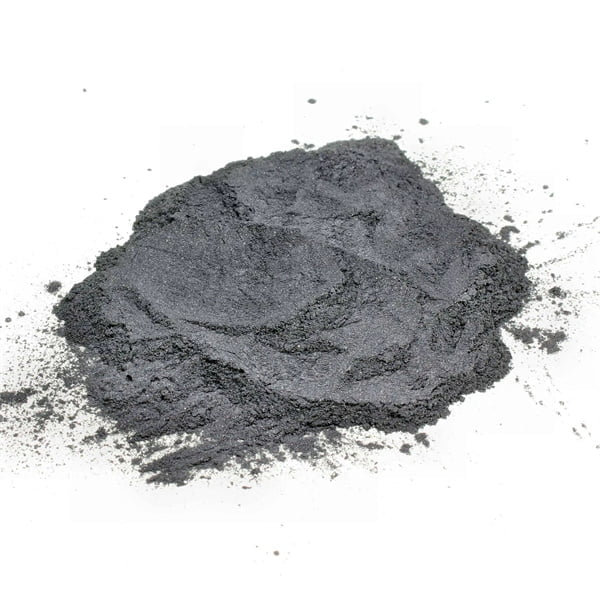
Fördelar och begränsningar med DED inom fordonstillverkning
Fördelar:
- Oöverträffad designfrihet: Skapa komplexa geometrier och integrera funktioner som är omöjliga med traditionella metoder.
- Lättvikt: Bygg starka men lätta komponenter för förbättrad bränsleeffektivitet.
- Snabb prototyptillverkning: Accelerera utvecklingscykler med snabb och effektiv prototypskapande.
- Tillverkning på begäran: Producera anpassade delar efter behov, minimera lagerkraven.
- Reparation och omtillverkning: Förläng livslängden för kritiska komponenter och minska avfallet.
Begränsningar:
- Kostnad: DED-system och metallpulver kan vara dyra jämfört med traditionella metoder.
- Bygghastighet: DED kan vara långsammare än vissa traditionella tillverkningstekniker för storvolymproduktion.
- Ytfinish: DED-delar kan kräva ytterligare efterbearbetning för en jämn finish.
- Processkontroll: DED kräver noggrann kontroll av parametrar för att säkerställa delkvalitet och konsistens.
Framtiden för DED inom biltillverkning
Framtiden för DED inom biltillverkning är ljus. När DED-tekniken fortsätter att utvecklas kan vi förvänta oss att se:
- Minskade kostnader: Framsteg inom DED-system och metallpulver kommer att göra tekniken mer kostnadskonkurrenskraftig med traditionella metoder.
- Ökade bygghastigheter: Snabbare DED-processer kommer att göra tekniken lämplig för produktionsserier med större volymer.
- Förbättrad ytfinish: Avancerade DED-tekniker kommer att producera delar med jämnare finish, vilket minskar behovet av efterbearbetning.
- Större utbud av material: Nya DED-metallpulver kommer att utvecklas för ett bredare spektrum av fordonsapplikationer.
DED: Materialvalsöverväganden
Vi har tidigare utforskat en mängd olika DED-metallpulver, men att välja rätt för din specifika applikation kräver noggrant övervägande. Här är några viktiga faktorer att tänka på:
- Önskad delegenskaper: Detta är den mest avgörande faktorn. Matcha pulvrets egenskaper (hållfasthet, korrosionsbeständighet, vikt etc.) till den slutliga delens behov. Till exempel, om du bygger en lätt fjädringskomponent, skulle aluminium Si7Mg0.3 vara ett bra val på grund av dess höga styrka-till-vikt-förhållande. Omvänt, om du bygger ett turbinblad som måste tåla extrema temperaturer, skulle Inconel 625 vara ett bättre alternativ på grund av dess exceptionella prestanda vid höga temperaturer.
- Kompatibilitet med DED-systemet: Alla DED-system är inte skapade lika. Se till att pulvret du väljer har rätt partikelstorleksfördelning och flytbarhet för optimal prestanda inom din specifika DED-maskin. Rådfråga maskinens tillverkare för rekommenderade pulver eller kompatibla pulveregenskaper.
- Kostnad: DED metallpulver kan variera avsevärt i pris. Tänk på kostnaden för själva pulvret, såväl som eventuella ytterligare bearbetningskostnader i samband med det valda materialet. Till exempel kan vissa exotiska puder som Maraging Steel 1.2379 erbjuda överlägsen styrka men kommer till en premie jämfört med vanligare alternativ som Stainless Steel 316L.
- Miljöpåverkan: Hållbarhet är ett växande problem inom fordonsindustrin. Tänk på miljöavtrycket av pulvrets produktion och återvinningsbarhet. Vissa pulver, som aluminium och titan, återvinns lättare än andra, vilket bidrar till en mer hållbar tillverkningsprocess.
- Tillgänglighet: Se till att pulvret du väljer är lätt tillgängligt från en välrenommerad leverantör. Produktionsförseningar på grund av pulverbrist kan störa din tillverkningsprocess.
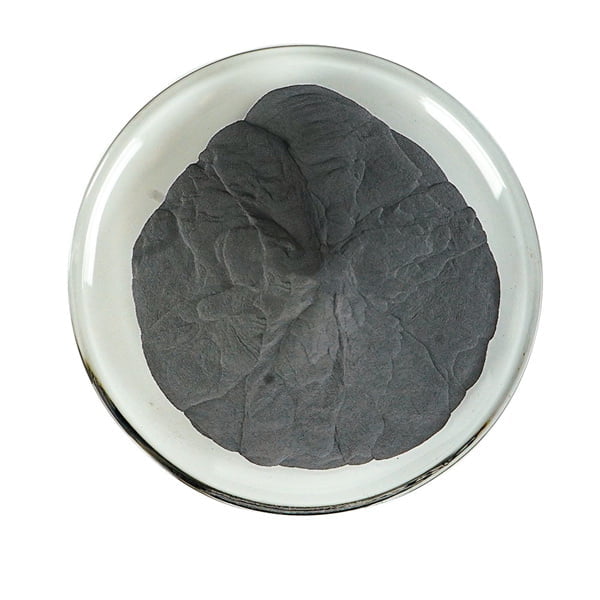
Här är en tabell som sammanfattar några viktiga överväganden för olika typer av DED metallpulver:
| Önskad delegendom | Potentiella DED-metallpulver | Överväganden |
|---|---|---|
| Högt förhållande mellan styrka och vikt | Aluminium Si7Mg0.3, Titan Ti-6Al-4V | Tillgänglighet, kostnadseffektivitet |
| Utmärkt prestanda vid höga temperaturer | Inconel 625, Inconel 718 | Kompatibilitet med DED-system |
| God korrosionsbeständighet | Rostfritt stål 316L, aluminium Si7Mg0.3 | Påverkan på miljön |
| Hög slitstyrka | Koboltkrom CoCrMo, Verktygsstål H13 | Krav på ytfinish |
| Biokompatibilitet | Rostfritt stål 316L, Titan Ti-6Al-4V | Används i specialfordon för personer med funktionsnedsättning |
Kom ihåg att att välja rätt DED-metallpulver är ett avgörande steg för att säkerställa framgången för ditt projekt. Genom att noggrant överväga de faktorer som nämns ovan kan du välja det perfekta pulvret för att möta dina specifika behov och uppnå optimala resultat.
VANLIGA FRÅGOR
Här är några vanliga frågor (FAQ) om DED i biltillverkning, presenterade i ett tydligt och informativt tabellformat:
| Fråga | Svar |
|---|---|
| Vilka är de främsta fördelarna med att använda DED i biltillverkning? | DED erbjuder oöverträffad designfrihet, möjliggör lättviktning av fordon, underlättar snabb prototypframställning och on-demand-tillverkning och möjliggör reparation och omtillverkning av kritiska komponenter. |
| Vilka är några begränsningar för DED? | DED-system och metallpulver kan vara dyra jämfört med traditionella metoder. Bygghastigheter kan vara långsammare för produktion av stora volymer, ytfinish kan kräva efterbearbetning och processen kräver noggrann kontroll för jämn detaljkvalitet. |
| Vilka typer av metallpulver används vanligtvis i DED för fordonstillämpningar? | Rostfritt stål 316L, Inconel 625, Aluminium Si7Mg0.3, Titanium Ti-6Al-4V, Nickel Alloy 718 och många fler, var och en med specifika egenskaper lämpade för olika applikationer. |
| Är DED lämplig för högvolymproduktion? | Även om DED för närvarande inte är idealiskt för massproduktion av enkla delar, blir det allt mer lönsamt för mindre serier, högvärdiga komponenter eller de med komplexa geometrier. |
| Hur påverkar DED fordonsindustrins framtid? | DED förväntas spela en betydande roll i framtiden för biltillverkning, vilket möjliggör lättare, mer bränslesnåla fordon, snabbare utvecklingscykler och mer hållbara tillverkningsmetoder. |
Genom att förstå potentialen och begränsningarna hos DED, såväl som krångligheterna i DED-valet av metallpulver, kan biltillverkare utnyttja denna transformativa teknik för att skapa nästa generations fordon.
Dela på
MET3DP Technology Co, LTD är en ledande leverantör av lösningar för additiv tillverkning med huvudkontor i Qingdao, Kina. Vårt företag är specialiserat på 3D-utskriftsutrustning och högpresterande metallpulver för industriella tillämpningar.
Förfrågan för att få bästa pris och anpassad lösning för ditt företag!
Relaterade artiklar

Högpresterande segment för munstycksvingar: Revolutionerande turbineffektivitet med 3D-utskrift i metall
Läs mer "Om Met3DP
Senaste uppdateringen
Vår produkt
KONTAKTA OSS
Har du några frågor? Skicka oss meddelande nu! Vi kommer att betjäna din begäran med ett helt team efter att ha fått ditt meddelande.

Metallpulver för 3D-printing och additiv tillverkning
FÖRETAG
PRODUKT
cONTACT INFO
- Qingdao City, Shandong, Kina
- [email protected]
- [email protected]
- +86 19116340731







